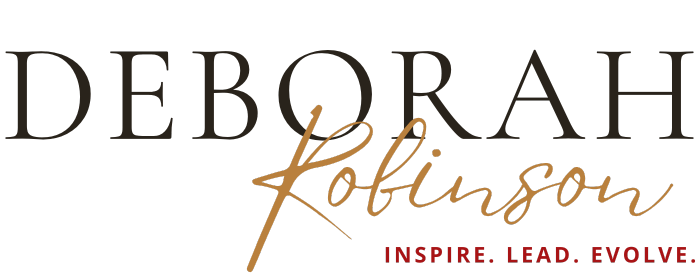Developing Emotional Intelligence for Better Relationships
Emotional intelligence (EQ) is one of the most important qualities you can cultivate to improve your relationships—whether personal or professional. The ability to understand, manage, and express your emotions in healthy ways can significantly enhance your communication, build stronger connections, and create deeper, more meaningful relationships.
While many people focus on intellectual intelligence (IQ) as the key to success, emotional intelligence often has a more profound impact on our well-being and our ability to navigate life’s challenges. As someone who has worked with individuals seeking more fulfilling relationships, I’ve seen firsthand how developing emotional intelligence can create positive change in all areas of life.
In this post, I’ll walk you through what emotional intelligence is, why it matters, and how you can develop your EQ to create better relationships with those around you.
What Is Emotional Intelligence?
Emotional intelligence is the ability to recognize, understand, manage, and influence both your own emotions and the emotions of others. It’s about being aware of your feelings, responding to situations thoughtfully, and empathizing with others in a way that fosters connection and understanding.
Emotional intelligence involves five key components:
- Self-awareness: Recognizing and understanding your emotions and how they affect your thoughts and behavior.
- Self-regulation: Managing your emotions in healthy ways, especially in stressful situations, without letting them control you.
- Motivation: Being able to set and work toward goals with enthusiasm and perseverance.
- Empathy: Understanding and sharing the feelings of others, and responding with care and consideration.
- Social skills: Effectively managing relationships, communicating well, and resolving conflicts in constructive ways.
When you develop emotional intelligence, you become better equipped to navigate the complexities of human interaction and create more harmonious, fulfilling relationships.
Why Emotional Intelligence Matters in Relationships
Emotional intelligence is the foundation of healthy, strong relationships. Whether it’s with your partner, family, friends, or colleagues, the way you manage your emotions and connect with others plays a huge role in how successful and satisfying those relationships are. Here’s why developing EQ is so important:
- Improved Communication: When you’re self-aware and able to manage your emotions, you can communicate more clearly and constructively. You’ll also be able to listen actively, which is key to understanding others and resolving conflicts.
- Stronger Empathy: Empathy allows you to connect with others on a deeper level, showing that you understand and care about their emotions. It helps to strengthen bonds and create trust.
- Better Conflict Resolution: Emotions often run high during conflicts, but those with high emotional intelligence are better able to stay calm, address issues without escalating tensions, and find solutions that work for everyone involved.
- Increased Emotional Support: When you’re emotionally intelligent, you can offer more effective emotional support to others, helping them feel heard and validated. This makes your relationships more resilient and supportive, even during difficult times.
The ability to navigate emotions with maturity and understanding is essential for building the kind of relationships that last, grow, and thrive.
How to Develop Emotional Intelligence for Better Relationships
Developing emotional intelligence takes time and practice, but with dedication, anyone can improve their EQ and experience the benefits in their relationships. Here are some practical ways to boost your emotional intelligence:
1. Practice Self-Awareness
Self-awareness is the foundation of emotional intelligence. It’s about being in tune with your emotions and recognizing how they influence your thoughts and actions. The more aware you are of your feelings, the better you can manage them.
Here’s how you can practice self-awareness:
- Keep a journal: Write about your daily emotional experiences. Reflect on how certain situations made you feel, and explore why you reacted the way you did.
- Pause and reflect: Before reacting to a situation, take a moment to check in with yourself. Ask yourself, “What am I feeling right now, and why?”
- Seek feedback: Ask people you trust for honest feedback about how they perceive your emotions and reactions. This can give you valuable insight into your emotional patterns.
The more you practice self-awareness, the better you will become at recognizing and understanding your emotions in real time.
2. Learn to Self-Regulate
Self-regulation is about managing your emotions and reactions, especially in challenging situations. It allows you to remain calm and focused, rather than reacting impulsively or letting your emotions control you.
To improve self-regulation, try the following strategies:
- Take deep breaths: When you feel your emotions starting to escalate, pause and take several slow, deep breaths. This will help calm your nervous system and give you space to respond thoughtfully.
- Practice mindfulness: Mindfulness meditation can help you become more aware of your emotions without letting them dictate your actions. Regular mindfulness practice can increase your ability to stay calm and present in the moment.
- Reframe your thoughts: If you’re feeling frustrated or upset, try to reframe your thoughts. Instead of thinking, “This situation is unfair,” try thinking, “I can control how I respond to this.”
With practice, self-regulation will help you remain balanced, even in emotionally charged situations.
3. Cultivate Empathy
Empathy is the ability to understand and share the feelings of others. It’s essential for creating strong emotional connections and for offering support in times of need. When you empathize with someone, you show them that their emotions are valid, which strengthens trust and connection.
To cultivate empathy:
- Practice active listening: When someone is speaking, truly listen to their words without interrupting or planning your response. Focus on understanding their emotions and perspective.
- Ask questions: Instead of making assumptions, ask open-ended questions to understand the other person’s feelings more deeply. For example, “How did that make you feel?” or “What can I do to support you?”
- Put yourself in their shoes: Try to imagine what the other person is going through and how they might be feeling. This will help you respond in a compassionate way.
Empathy is a powerful tool for building trust and rapport in your relationships. It shows others that you care about their emotions and experiences.
4. Develop Your Social Skills
Social skills are key to managing and building relationships. Being able to communicate effectively, resolve conflicts, and connect with others in positive ways is essential for fostering strong relationships.
To improve your social skills:
- Communicate clearly: Practice expressing yourself in a calm and clear manner. Avoid blame or defensiveness, and instead, focus on sharing your feelings and needs respectfully.
- Be open to feedback: Acknowledge and accept constructive criticism, and use it as an opportunity to grow. Be willing to apologize when necessary and show that you’re open to learning from others.
- Resolve conflicts respectfully: Instead of avoiding conflict, address it head-on with a solution-focused mindset. Aim for understanding, compromise, and mutual respect.
Strong social skills will allow you to navigate relationships more smoothly and foster more meaningful connections.
The Power of Emotional Intelligence in Relationships
Developing emotional intelligence is one of the most impactful things you can do to improve your relationships. By practicing self-awareness, self-regulation, empathy, and social skills, you can create deeper connections with others, communicate more effectively, and navigate conflicts in healthy ways.
Remember, emotional intelligence is not something you’re born with—it’s a skill that can be developed over time. With consistent effort and practice, you can enhance your EQ and enjoy stronger, more fulfilling relationships with the people who matter most to you.
Are you ready to develop emotional intelligence and improve your relationships? Contact me today to schedule a discovery call, and let’s explore how emotional intelligence can transform your personal and professional connections.




